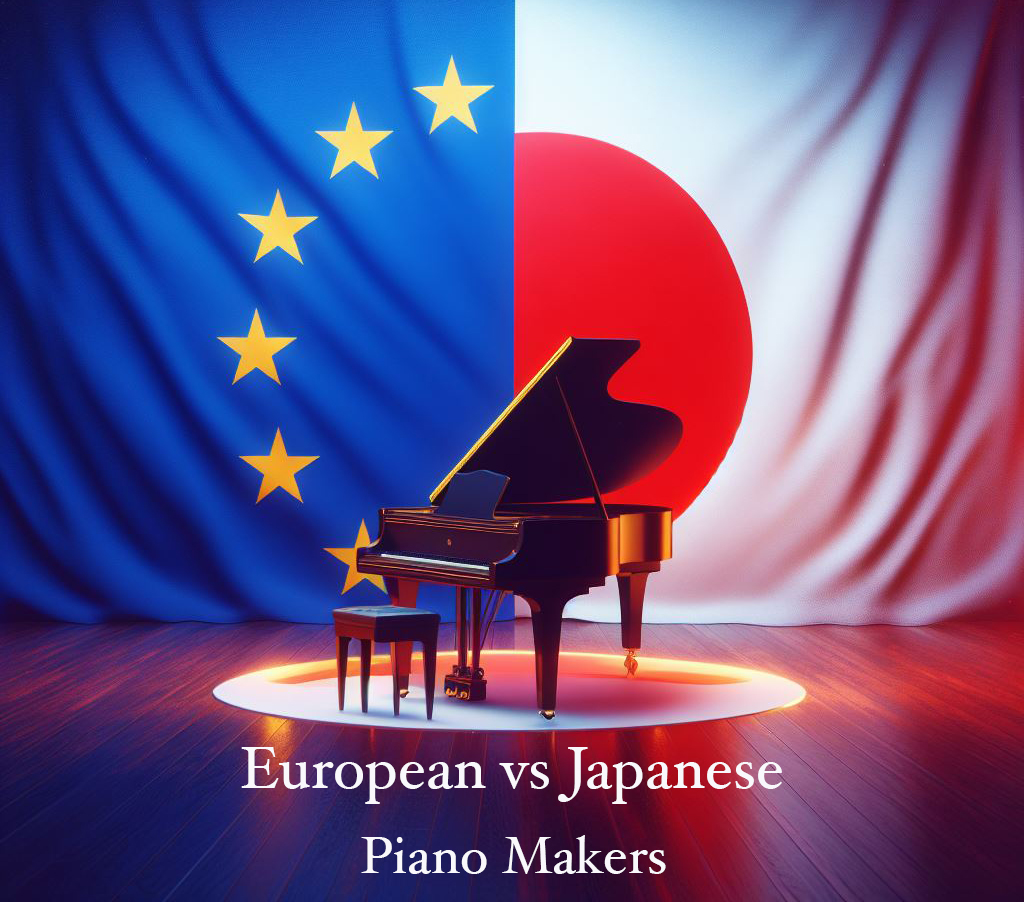Alright, folks, gather ’round the musical campfire, because we’re about to dive into a battle as legendary as Beethoven’s bad hair day versus Mozart’s frilly wigs: European piano makers versus their Japanese counterparts! It’s a clash of cultures, a symphony of styles, and a showdown of sonic proportions. Let’s grab our popcorn and get this piano party started!
Craftsmanship and Tradition
In the European corner, we’ve got the seasoned veterans, the OGs of piano-making. These folks have been churning out pianos since before your great-great-grandma could even hum a tune. They’ve got woodworking skills that would make a beaver jealous, and they’ve perfected the art of turning tree trunks into melodic masterpieces. Their pianos sing with the warmth of a thousand campfires and the sophistication of a highbrow tea party.
Over in the land of the rising sun, we’ve got the Japanese wizards of woodwork. They’ve taken traditional craftsmanship and sprinkled it with a dash of technological fairy dust. These piano masters are all about precision, precision, precision. Their instruments boast tones so clear, they could cut through fog like a laser beam through butter. It’s like they’re saying, “Hey, European pianos, hold my sake!”
Innovation and Technology
Now, let’s talk about innovation. The Japanese aren’t just satisfied with making beautiful-sounding pianos; they want their keys to have superpowers. Kawai, for instance, decided to give their pianos a makeover with space-age materials and tech that would make NASA jealous. It’s like they asked themselves, “What if Tony Stark designed pianos?”
Meanwhile, our European buddies have been in the lab, too. They’ve taken a page from Dr. Frankenstein’s playbook (minus the lightning bolts and mad cackles) and fused old-school craftsmanship with modern tech. The result? Pianos that can withstand everything from wild temperature swings to impromptu dance parties with elephants. They’re basically the Chuck Norrises of the piano world.
Market Appeal and Availability
Now, let’s talk about the popularity contest. European pianos have always been the cool kids on the block, the James Bonds of the music world. They’ve graced the stages of legendary concert halls, making audiences swoon and critics weep with joy. But let’s face it, they can be a tad high-maintenance, like that diva who demands only blue M&Ms in the dressing room.
On the other hand, Japanese pianos are like the friendly neighborhood superheroes. They swoop in, save the day, and do it all with a friendly smile. They’re the go-to choice for music schools, budding pianists, and budget-conscious musicians who want a top-notch instrument without auctioning off their spleen. They’re the MacGyvers of the piano world, doing more with less.
Conclusion
So folks, whether you’re a fan of European elegance, or appreciate Japanese innovation, one thing’s for sure: pianos are like pizza – even when they’re bad, they’re still pretty darn good. So go forth, tickle those ivories, and make beautiful music, no matter which side of the global piano showdown you land on.



